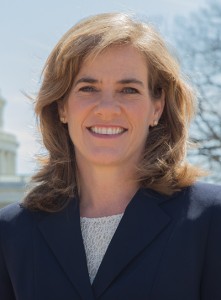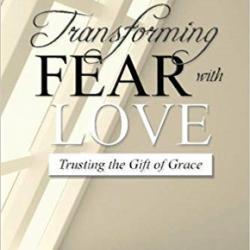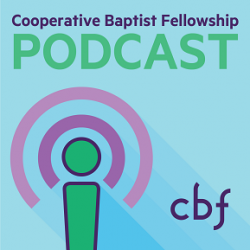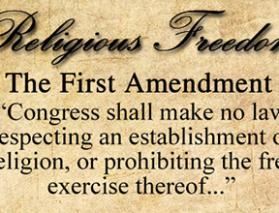By Holly Hollman
Recently, the term “religious liberty” has been used loosely by the media, presidential candidates and others, causing a great deal of confusion. There have been highly charged fights over laws purporting to protect religious liberty. There has been fear about how someone’s religious liberty could harm another person. News articles often put “scare quotes” around the term.

For more than four centuries, Baptists have been at the vanguard of the fight for religious liberty for all people, no matter their beliefs. In the midst of much confusion, it can be helpful to return to the foundational principles of religious liberty and the unique way it is protected in the United States.
The term “religious liberty” means the freedom to believe and exercise or act upon religious conscience without unnecessary interference by the government. It involves both the freedom to practice religion and not to practice religion. If you can’t say “no,” your “yes” is meaningless.
Just like any freedom, religious liberty is not without limits. As the old saying goes, “My right to swing my fist ends where your nose begins.” Some religions involve beliefs or practices that conflict with other laws; in the United States, that could include compulsory education laws, animal protection laws and anti-drug laws. When conflicts arise, legislatures and courts must step in to determine how to accommodate sincere religious beliefs while protecting other government interests, including protecting those who may not share the same beliefs. So, when government makes exceptions for religious exercise, it must look out for the rights and well-being of others who may be detrimentally affected.
As commonplace as it may seem today, this concept was not always widely understood. Baptists have always believed we are inherently free to choose whether to worship God and follow Christ without efforts by the government to advance or restrain religion. This historic commitment to religious liberty for all people can be traced back to 17th century England. Thomas Helwys, who helped establish the first Baptist congregation in England, called for individual religious freedom, declaring that the King of England had no power over the souls of his subjects. Helwys’ audacious words landed him in prison, where he languished and died.
In colonial America, Baptists faced persecution for their beliefs at the hands of the colonial theocratic governments. As the colonies began to work for their independence from England, they continued to banish Baptists and other religious minorities to jails for dissenting religious views and practices. During this time, Roger Williams fled persecution in Massachusetts and founded Rhode Island, establishing “a shelter for persons distressed for conscience” for anyone of any belief and created the first Baptist church in America. Baptist preachers in Virginia were imprisoned for preaching the Gospel without a license from the government.
When the United States began drafting its constitution, Baptists led by John Leland in Virginia pressed for explicit religious freedom protections. Baptists said the government was powerless to control conscience and incompetent to dictate spiritual matters. The ideas that the government will not do anything to establish religion or obstruct an individual’s religious practice were new and radical. In 1791, the ratification of the First Amendment embodied the Baptist vision of a nation founded on religious liberty for all and the institutional separation of church and state.
The first 16 words of the First Amendment continue to protect religious freedom. The prohibition on an establishment of religion keeps the government from advancing or privileging religion. The protection of free exercise keeps the government from unnecessarily interfering with religious practice.
The First Amendment keeps government neutral — neither helping nor hurting religion, but allowing people to practice their religion (or practice no religion). That distinct method of protection allows people with vastly different beliefs to live peaceably together, and it creates an institutional separation of church and state that is good for both. Additional protections exist in various federal, state and local laws.
The Baptist Joint Committee for Religious Liberty advocates a “golden rule” of religious liberty: Do not ask government to promote your religion if you don’t want government to promote somebody else’s religion; and do not permit government to hinder somebody else’s religion if you don’t want government to hinder your own religion.
The expression of the Baptist ideal of religious liberty began more than four centuries ago, and we all have a role and responsibility to make sure it is protected through the next 400 years and beyond.
Holly Hollman serves as General Counsel of the Baptist Joint Committee for Religious Liberty in Washington, D.C.












